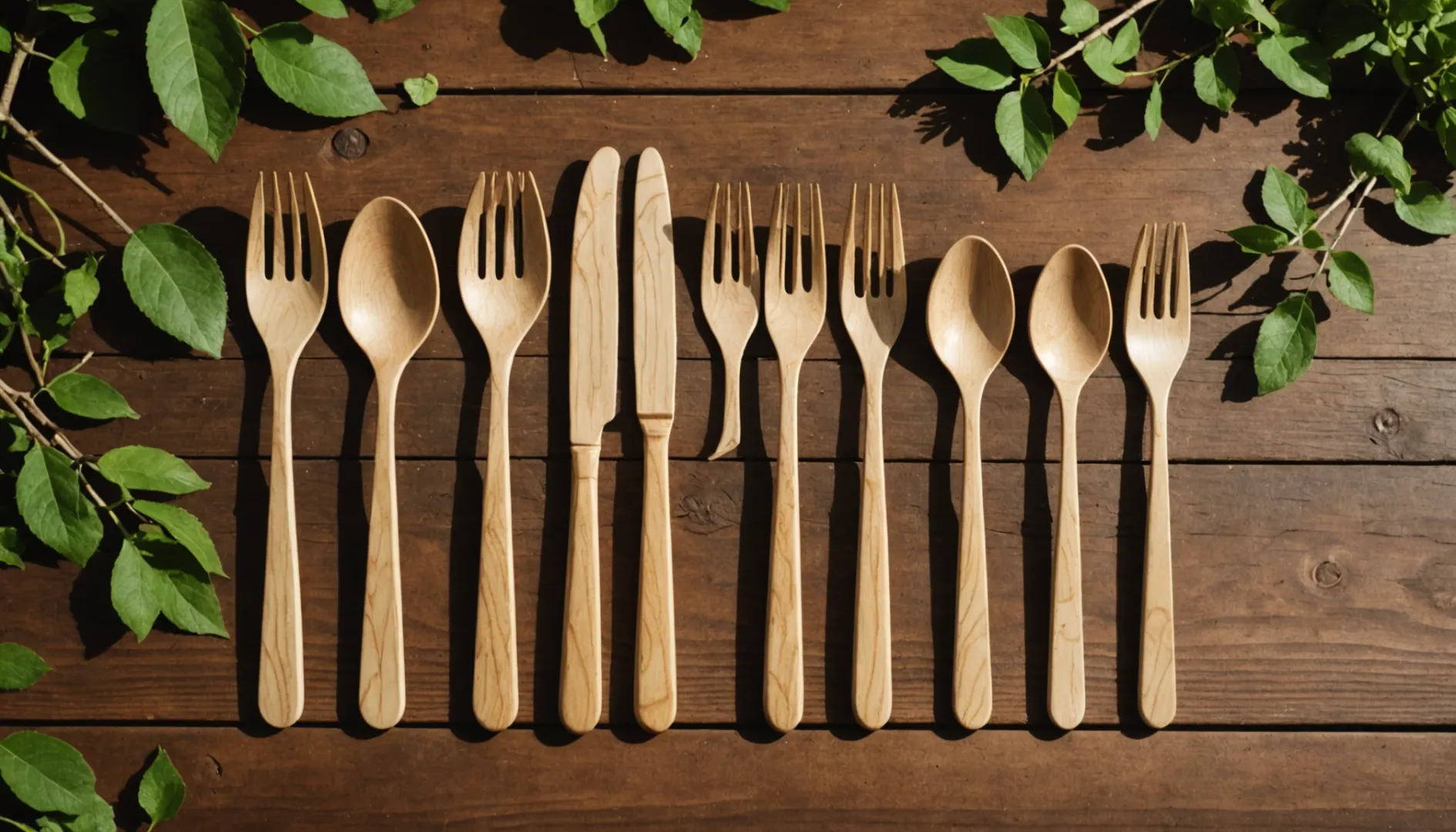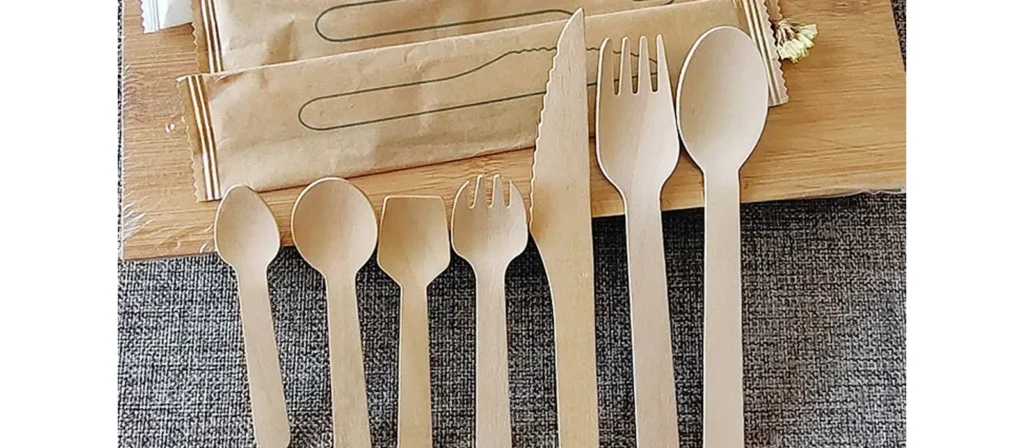In recent years, the circular economy has emerged as a transformative model to combat the environmental challenges posed by waste and resource depletion. Wooden cutlery, as a sustainable and biodegradable alternative to plastic utensils, plays a crucial role in this system by promoting resource efficiency, reducing carbon footprints, and supporting eco-friendly lifestyles.
At Stuti Exim, we are committed to providing high-quality wooden cutlery products that align with the principles of the circular economy. This blog explores how wooden cutlery contributes to sustainable practices, its environmental benefits, and why it is an essential element in creating a waste-free future.

Understanding the Circular Economy
The circular economy is a closed-loop system that focuses on eliminating waste, maximizing resource use, and regenerating natural systems. Unlike the traditional linear economy (produce, use, dispose), the circular economy emphasizes:
- Design for Sustainability: Using materials that are reusable, recyclable, or biodegradable.
- Waste as a Resource: Repurposing waste into new materials or energy sources.
- Long-term Value: Creating products that can be reused or reintegrated into the environment without harm.
Wooden cutlery perfectly fits into this framework by offering a sustainable, biodegradable alternative to single-use plastics.
The Environmental Benefits of Wooden Cutlery
1. Biodegradability
Wooden cutlery decomposes naturally, returning to the earth without releasing harmful toxins. This process supports soil enrichment and reduces the burden on landfills.
2. Renewable Resource
Wood is derived from trees, a renewable resource when harvested responsibly. Products made from sustainably managed forests ensure that the circular economy's principles are upheld.
3. Energy Efficiency
The production of wooden cutlery requires less energy compared to plastic manufacturing. This contributes to a lower carbon footprint, aligning with global sustainability goals.
4. Elimination of Microplastics
Plastic utensils break down into microplastics, polluting ecosystems and entering the food chain. Wooden cutlery eliminates this issue, providing a safer and cleaner alternative.
How Wooden Cutlery Supports the Circular Economy
1. Sustainable Sourcing and Manufacturing
At Stuti Exim, our wooden cutlery is sourced from FSC-certified forests, ensuring responsible harvesting practices. This sustainable sourcing minimizes environmental impact and supports the regeneration of forests.
2. Reduced Waste Generation
By encouraging the use of compostable wooden cutlery, businesses and individuals can significantly reduce the volume of non-recyclable waste generated daily.
3. Promoting Reusability
Wooden cutlery can often be reused multiple times before composting, increasing its utility while decreasing waste.
4. Alignment with Global Goals
Wooden cutlery aligns with Sustainable Development Goals (SDGs), particularly those focused on responsible consumption and production (Goal 12) and climate action (Goal 13).
Why Choose Wooden Cutlery for Your Business?
Switching to wooden cutlery not only benefits the environment but also enhances your brand’s image as a socially responsible organization. Key advantages include:
- Eco-conscious Branding: Customers appreciate businesses that prioritize sustainability.
- Compliance with Regulations: Many regions now ban single-use plastics, making wooden cutlery a legal and sustainable alternative.
- Cost-effectiveness: With advancements in manufacturing, wooden cutlery is becoming more affordable without compromising quality.

Conclusion
Wooden cutlery is more than just a disposable utensil; it is a step toward a circular economy that values sustainability, resource efficiency, and environmental responsibility. By choosing wooden cutlery from Stuti Exim, you not only contribute to a greener planet but also inspire others to adopt eco-friendly practices.
Let’s work together to build a waste-free, sustainable future.